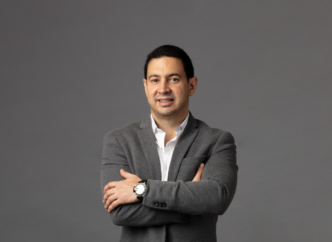Mexican startup Plenna, which offers comprehensive health services for women, announced the closing of a Series A investment round for US$6 million. With these resources, the company plans to expand its hybrid model, which combines physical clinics with a digital platform, opening 13 new locations and improving its technology to serve more than 200,000 women in the coming years.
The round was led by funds Mazapil, Dalus Capital, New Ventures and investor Karla Berman. This financing represents an important step for the healthtech sector in Mexico, not only because of the amount raised, but also because of the focus on improving access to quality gynecological and obstetric services.
In an interview with Contxto, founders Lorena Ostos and Giovanna Abramo explained how they plan to use these resources:
“This Series A round, led by Mazapil and with the participation of Dalus, NVC and Karla Berman, will allow us to accelerate both our geographic and technological expansion. We will continue to invest in our technology platform to offer more integrated, proactive, and patient-centered healthcare, in line with major global trends in healthcare,” said the founders.
Plenna currently operates four clinics in Mexico City: Del Valle, San Ángel, Polanco and Satélite. Its model combines face-to-face care with a digital platform that allows users to schedule appointments, consult results, access nutrition and psychology services, make online payments and centralize their medical history.
According to Ostos, one of the main challenges the startup seeks to address is the lack of access to health insurance and the limitations of the public health system in Mexico. Ninety-five percent of Plenna’s patients are women who pay directly for services, mostly young people between 27 and 35 years old, professionals, students or new mothers looking for a preventive and personalized approach.
Technological development and expansion
Part of the funds raised will be used for the technological development of the platform, with special emphasis on the application of artificial intelligence to optimize medical processes.
The founders detailed how they are implementing this technology: “We are currently applying it in two areas: to generate automatic medical summaries within the digital clinical record, which significantly reduces the administrative time of medical staff and improves the quality and accuracy of consultations. This allows healthcare professionals to focus on what is most important: listening, diagnosing and closely accompanying each patient.”
Discussing the second application, the founders added: “We analyze patterns in communication with our patients – from messages in the app to frequently asked questions – to identify opportunities for improvement in clinical follow-up, especially in the delivery of results and continuity of care. Thus, AI at Plenna does not replace the physician, but rather empowers him or her, allowing us to offer more timely, warm and personalized care.”
Plenna’s physical expansion will include the opening of clinics in Queretaro, Guadalajara, Monterrey, Puebla and Aguascalientes. Adding these new locations to the existing ones in Mexico City, the startup expects to have 17 clinics in operation by 2028.
Regarding their growth goals, the founders shared: “Our objective is to reach 200,000 patients by the end of 2026. Today we already serve more than 60,000 women, and we have proven that our hybrid model – which combines physical clinics with a digital platform – generates high levels of satisfaction, recurrence and recommendation.”
“To achieve this goal, we are growing in a controlled manner, ensuring that each new opening maintains operational efficiency and replicates successful processes. The trust women have placed in Plenna is what drives us to think big. We want to be their health brand for life,” the founders concluded.
The company’s growth is framed in a context where more and more women are looking for specialized and stigma-free health options. Although the healthtech sector in Mexico still faces regulatory and adoption challenges, this startup’s bet is that its hybrid model can reach more people without relying exclusively on health insurance or public institutions.








